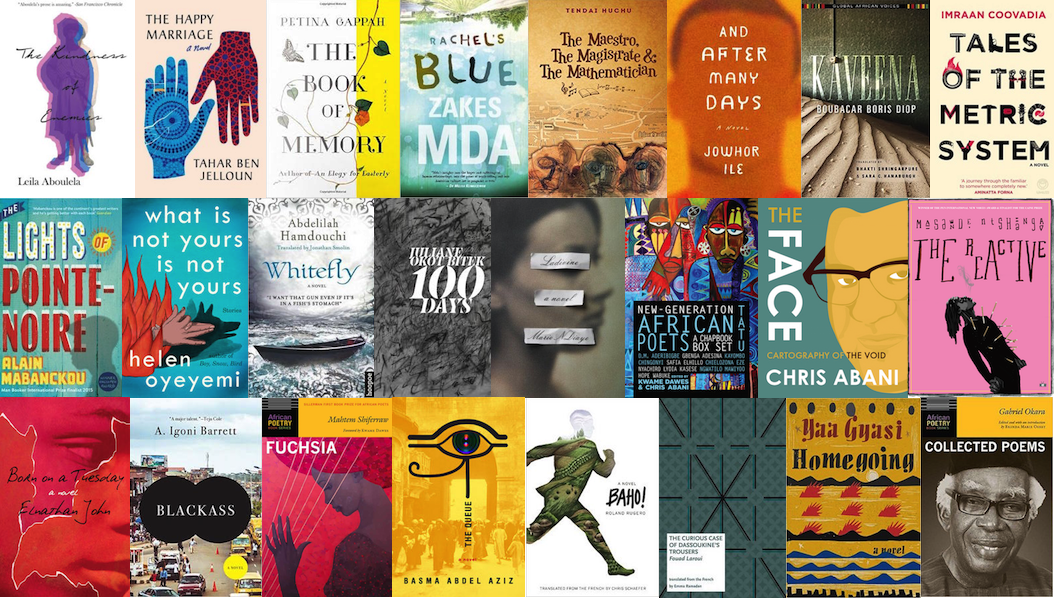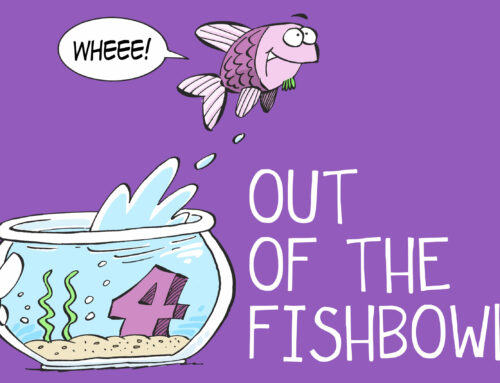What are you busy reading? Or what was the last book you read? And who was the author?
These questions may seem quite innocuous and innocent, much like the unnecessary ‘How are you?’ we throw at someone we haven’t seen for years when we bump into them in a supermarket [if we really cared how they were doing, the time since our last meeting might have been a lot shorter?]. But i want to invite you to pause a little and reflect on them as, if answered correctly, they could seriously start to transform your life.
i just started reading ‘The Eternal Audience of One’ by Rémy Ngamije, which tbV [aka my wife, the beautiful Val] recommended to me. It is a bit of a mammoth tome and yet the past two days i have been diving in and really ploughing my way through it and it has been so good for my soul to be back in a novel. [i spend a lot of time reading about race and other Justice issues].

Coming to from America
One of the greatest ironies in my life is that if i had never gone to America [close to 10 years ago now] i might not have found myself reading books by African authors. HOW DOES SOMETHING THAT LIKE EVEN WORK?
It was during our time there, hanging out with Justice-minded people, that we were challenged to read authors who did not look like us. You can read more about my transition over here, but in essence it was moving away from only really reading white, middle-aged american christian men and inviting a variety of different voices to inform and entertain! And it was one of the best things i have ever done.
Living in South Africa, and working on my own anti-racism and doing what i can to affect systems, structures and communities around me, the majority of books i seek out are written by South African and African authors.
My favourite author so far
i was introduced to Chimamanda Ngozi Adichie by my friend Heidi who lent me ‘Dear Ijeawele, or a Feminest Manifesto in Fifteen suggestions’ [which really doesn’t sound like a book i would have read back then, but i did and i loved it].
This sent me on a search for Americanah which i completely devoured as i found the writing to be on a different level than anything i had ever read before.
Terry Pratchett [author of the Comedy Fantasy series Discworld] was my favourite author before discovering Chimamanda Ngozi Adichie and he will always hold a special place in my heart, because you cannot beat such classic lines as:
“The trouble with having an open mind, of course, is that people will insist on coming along and trying to put things in it.”
“Give a man a fire and he’s warm for a day, but set fire to him and he’s warm for the rest of his life.”
“Evil begins when you begin to treat people as things.”
“There have been times, lately, when I dearly wished that I could change the past. Well, I can’t, but I can change the present, so that when it becomes the past it will turn out to be a past worth having.”
So he will always be a favourite, but now he has to share the title.
Purple Hibiscus and Half of a Yellow Sun followed, both of which broke me [the setting of Nigeria with themes of war, colonialism, complicated relationships and passage of life] and then having to make do with short stories i could find every now and then as i wait for the next novel to hopefully appear. A good starting place to discover Chimamanda Ngozi Adichie is actually this incredible TED Talk she did on the power of a single story.

What is next?
The second African novelist i read was Sisonke Msimang, whose ‘Always Another Country’ was always going to struggle with comparisons to ‘Americanah’ which had just blown me away, but it was another deeply enjoyable book, and i was hooked.
So a few years ago i invited my social media connections to spotlight some specifically South African authored books they felt would be helpful to my learning and reading and we came up with this extensive list. Looking at it again, i am reminded that i have a long way to go… [this blog post has a link to another one we compiled looking at children’s books and stories that were recommended so go and check that out if you have kids].
But this week i threw the net wider and asked what African authors people had read or were reading and were recommending and this is the list that emerged. Huge thanks to everyone who has added to my wish list… if only my birthday was two days away #Cough:
i am going to bump my friend Lovelyn Chidima Nwadeyi to the top as a recommendation from her is sure to be gold, so take these seriously [and if you’re needing race work done in your work or community space, get hold of her as well]:
# Lovelyn Chidima Nwadeyi: ‘Just want to add that you should read EVERYTHING by Miriam Tlali, her works were censored during apartheid so not well known in SA but huge acclaim globally – Start with Muriel at Metropolitan. Also read Sindiwe Magona’s works. Especially her account of her experiences as a domestic worker. Start with To My Children’s Children.Chris van Wyk’s Shirley Goodness and Mercy is a treat exploring Black and Coloured racial dynamics amongst other things.Ena Jansen is a white South African women and I found her writing incredibly honest. She wrote a very recent and insightful history of domestic workers in SA since 1652. It’s changed my life to be honest.Antjie Krog is not everyone’s cuppa tea, but I do think her work is critical at the very least for us to reflect on, especially for white South Africans in THIS version of South Africa. I started with Country of my Skull, it was painful, but necessary.Lastly Zukiswa Wanner is doing the things. Read everything of hers that you can find!’
# Crystal Warren: Nnedi Okorafor is amazing if you like fantasy or science fiction.Greg Jewell: Agreed, Who Fears Death and the Binti trilogy have become top of my favorite booksCrystal Warren: For older, classic works my recommendations would be Our sister Killjoy by Ama Ata Aidoo, So long a letter by Mariamma Ba and The Joy’s of motherhood by Buchi Emecheta
# Nompumelelo Mlambo: “Piggy Boy’s Blues” by Nakhana Toure; “Under the Udala Trees” by Chinelo Okparanta and “London. Cape Town. Joburg” by Zukiswa Wanner.Some classics: “Nervous Conditions” by Tsitsi Dangarembga and “Arrow of God” by Chinua Achebe.I’d recommend those any day.
# Gretchen Zuidema Driesenga: Small Country by Gaël Faye, Homecoming by Yaa Gyasi
# Caroline Hoppe Pretorius: I loved reading Fred Khumalo Dancing the Death Drill and The Longest March – also Zakes Mda Little Suns
# Ross Rowley: Taduno’s Song by Odafe Atogun
# Jacqui Benson: Bom Boy and The Woman Next Door by Yewande Omotoso. 2 very different books, but both compelling in their own way.
# Kim van Kets: Bayo Akomolafe [The Wilds Beyond our Fences], Ben Okri for starters.
# Jacqueline Van Zyl: The Fishermen by Chogozi Obioma
Caroline Hoppe Pretorius: i also loved An Orchestra of Minorities by Obioma
# Imile De Villiers: Bessie Head is a must, and the novels are short. Chinua Achebe Things Fall Apart. Zakes Mda The Whale Caller, for a juicy love triangle involving a whale.
# Alison Beere: Tsitsi Dangarembga – start with Nervous Conditions
# Yanga Zembe Zondi: Please read NoViolet Bulawayo’s We Need New Names, and Tsitsi Dagarembra’s Nervous Conditions.
# Jared Sacks: Petals of Blood by Ngũgĩ wa Thiong’o
# And then my friend Jana Niehaus basically just gave us all a complete list to tackle which she has grouped for us in country which is super helpful:
Where to start?!! Maybe a couple of recommendations based on authors’ countries of birth or countries in which the novel is set:South Africa: Anything by Zakes Mda: I especially enjoyed The Heart of Redness, Ways of Dying and The Madonna of Excelsior; K Sello Duiker’s Thirteen cents (a disturbing read);Tanzania/Zanzibar/Zim: Out of the Darkness, Into the Shining Light and Book of Memory (Zim), Pettina GappahZim: Tsitsi Dangarembga’s trilogy (as mentioned by others on this thread); We Need New Names (Zim/US), Noviolet BulawayoWest-Africa – Sierra Leone: The Memory of Love and Ancestor Stones, Aminatta FornaWest Africa/US: Homegoing, Yaa GyasiNigeria: (besides Chimamanda): Stay with Me, Ayobami Adebayo; Graceland, Chris Abani; The Fishermen, Chigozie Obioma; In the Ditch (Nigeria/UK), Buchi Emecheta; 26A (Nigeria/UK), Diana EvansMorocco: The secret son, Laila LalamiCameron/US: Behold the Dreamers, Imbolo MbueSudan/UK/Russia: The Kindness of Strangers, Leila AboulelaZambia: Patchwork: Ellen Bandu-AakuSomalia: Orchard of Lost Souls, Nadifa MohamedEthiopia/India/US: Cutting for Stone, Abraham Verghese

Huge thanks to everyone who helped compile that list. We are not going to run out any time soon. Although, if you somehow have, then there is also this article of The eight must-read African novels to get you through Lockdown, so maybe start there and then work your way through this list.
If you find that you tend to only read white authors, pick a black/coloured/indian author and dive in. If you find that you tend to read books by men, pick one of the women on this list and give her a read. And so on. As we invite voices that are different to the ones we are used to, to inform and entertain us, so we begin to see life from different perspectives and viewpoints, which will only make us richer.
On a final note, this is a good change to make to other forms of entertainment such as movies and series, as well as music. Try something new and see what happens. It won’t all end up being your chocolate [i know that saying is ‘jam’ but jam is not my jam so we all make changes!] but on the way you are likely to discover some new favourites and perhaps find that the other anti-racism or reconciliation work you are doing becomes that little bit easier.
One example for me was the series How to Ruin Christmas: The Wedding’ on Netflix which didn’t look like something i thought i would particularly enjoy. But in the interests of choosing South African i decided to give it a chance. And it didn’t even earn ‘For a South African production’ which local stuff and christian stuff often needs to be disclaimed with. It is just a really well produced and entertaining show [just three long episodes i think] and i really enjoyed it and have already been told to check out ‘Blood and Water’ as my next one [and have been meaning to catch ‘Five Fingers for Marseilles’ for a while now.]
So when was the last time you read an African novel? Or even just someone who does not look like you? And how was it?







Leave a Reply